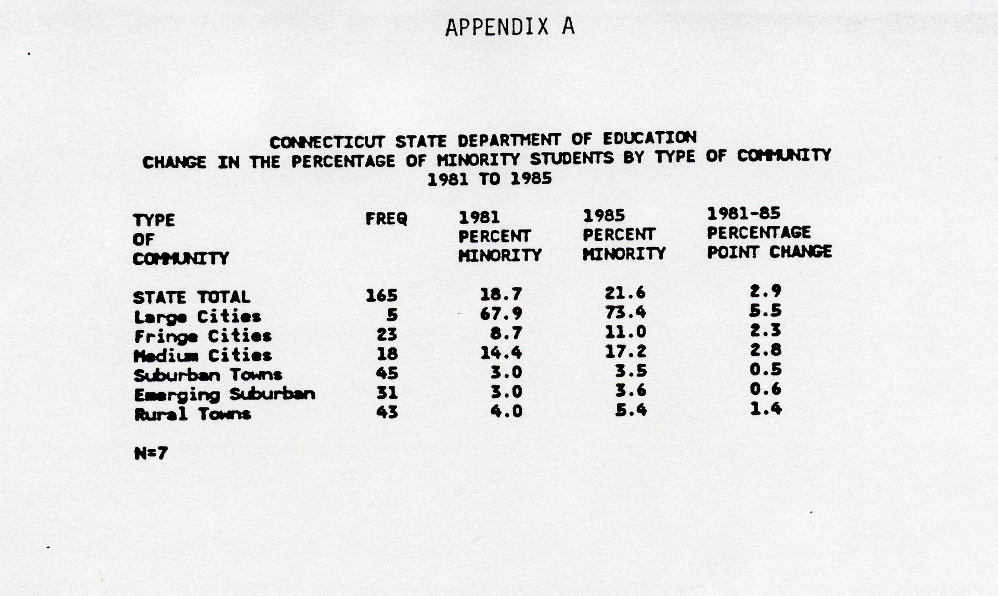On July 9, 1996, the Connecticut Supreme Court ruled that the state had an affirmative obligation to provide Connecticut’s school children with a substantially equal educational opportunity.
Landmark School Desegregation Case
The 4-3 decision in favor of the Sheff plaintiffs followed a lengthy trial and began with a lawsuit initiated in 1989. At that time, 18 school children from the Hartford area sued the state of Connecticut through their parents. They claimed that they were being denied their constitutional rights to an education because the resources extended to students in large, predominantly black and Latino cities, such as Hartford, were not equal to those of youth living in predominantly white areas. The lawsuit, with Milo Sheff, a fourth-grader, as the lead plaintiff, claimed that the State, represented in the suit by Governor William O’Neill, had an obligation to provide Connecticut’s school children with access to a public education not substantially and materially impaired by racial and ethnic isolation.
The Connecticut Supreme Court’s decision in favor of the Sheff plaintiffs overturned an earlier ruling by the Hartford Superior Court. Further, the 1996 ruling found that the racial and socioeconomic isolation of Hartford schoolchildren violated state law. The matter of how to address the imbalance was left to state government and public initiative.









